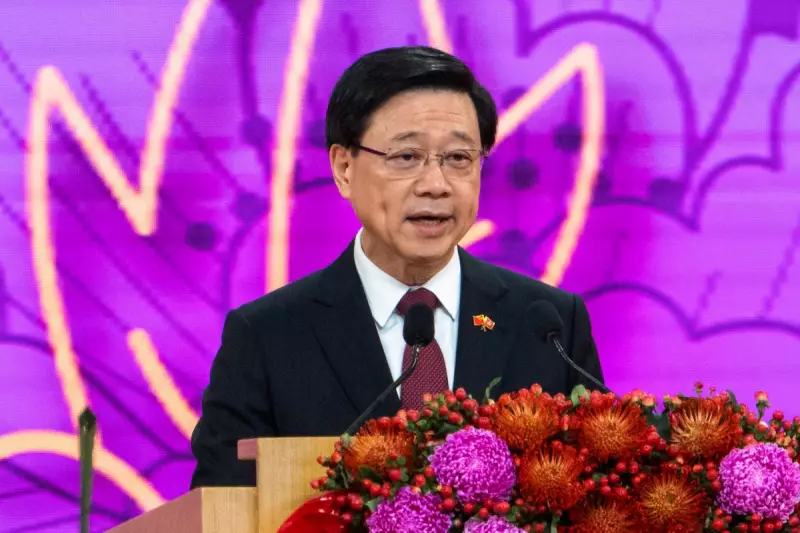
Hong Kong's leader, John Lee, has issued a blistering retort to a highly critical report from the United States, labelling it as baseless 'slander' and pledging to aggressively challenge any potential foreign sanctions. The strong-worded defence signals a major hardening of stance in the ongoing diplomatic rift between the Chinese special administrative region and the West.
The controversy stems from a recent report issued by the US Consulate General in Hong Kong. The document expressed serious concerns about the city's business environment, citing the stringent national security law imposed by Beijing as a significant deterrent to foreign investment and a threat to the former British colony's cherished freedoms.
A Firm Rejection of Foreign Criticism
In a defiant press conference held on Tuesday, Mr Lee, who is himself subject to US sanctions, left no room for ambiguity. He utterly rejected the report's findings, framing them as a malicious attack.
'The so-called report is full of slander and smears against the work on safeguarding national security in Hong Kong,' he stated. 'It made unwarranted accusations against the Hong Kong Special Administrative Region government, courts, and legal system.'
His remarks underscore the official position that the national security law is an internal matter, crucial for maintaining stability, and not open to foreign critique.
Vowing to 'Fight Back' Against Sanctions
The Chief Executive's rhetoric went beyond mere dismissal, taking on a decidedly combative tone. He explicitly threatened retaliatory measures should the US decide to act on the report's implications and introduce further sanctions against Hong Kong or its officials.
'We will fight back. We will take all necessary measures to counter any sanctions that would be applied,' Lee declared, embodying the increasingly assertive posture adopted by Beijing and its loyal administrators in Hong Kong.
This promise of retaliation marks a significant escalation and suggests a prepared toolkit of countermeasures, though specific actions were not detailed.
The Shadow of the National Security Law
At the heart of the dispute is the national security law, which was implemented in 2020. Critics, including Western governments and human rights organisations, argue it has been used to dismantle dissent, curb political opposition, and erode the judicial independence and civil liberties that were once hallmarks of the city.
The US report highlighted these very concerns, suggesting the legal climate has created palpable anxiety within the international business community. However, Mr Lee and Chinese officials maintain that the law has been instrumental in restoring order and prosperity after the mass pro-democracy protests of 2019.
This latest exchange ensures that Hong Kong will remain a persistent and volatile flashpoint in the deteriorating relationship between China and the United States for the foreseeable future.






